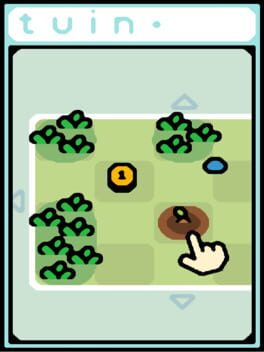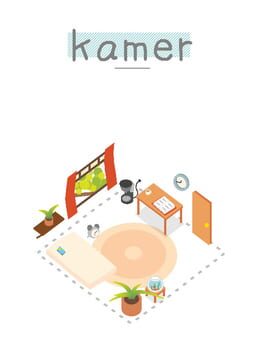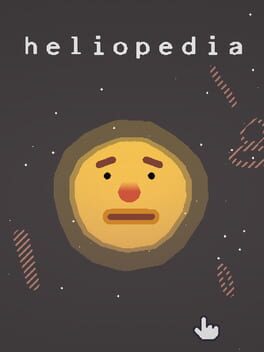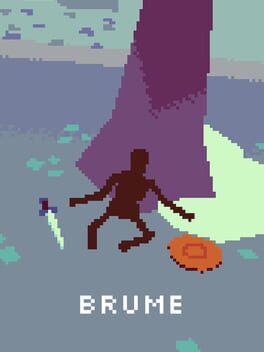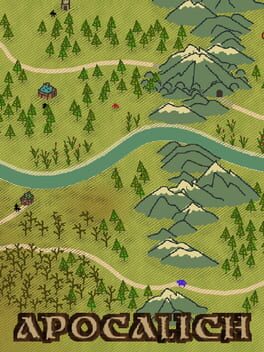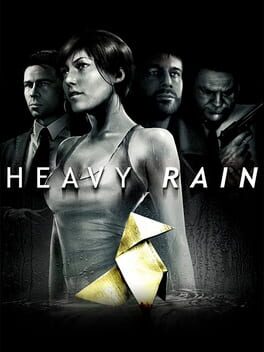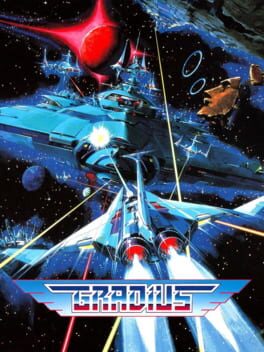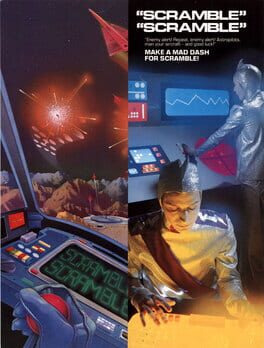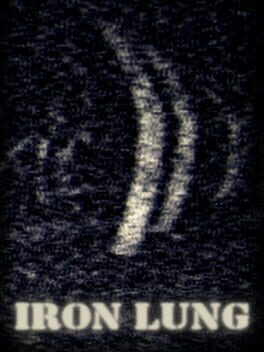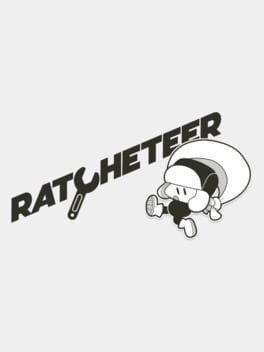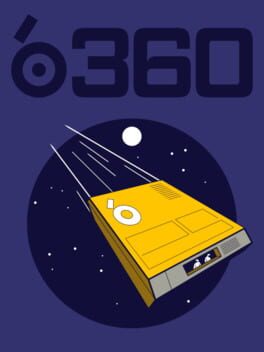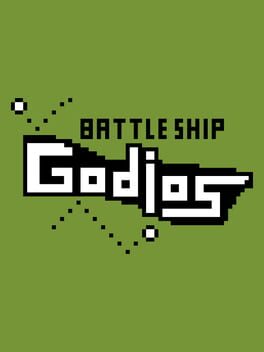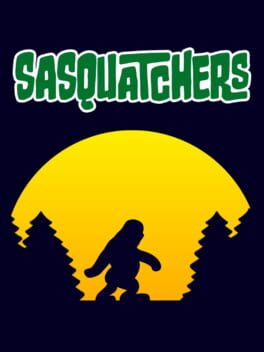2022
En muchos aspectos, Tuin es una versión más corta y menos variopinta que Heliopedia. Es un juego en el que tienes que plantar, vender, volver a plantar, expandir, y así hasta que te agotes o el juego se quede sin ideas. La complicación y tensión que añaden los animales y el hecho de tener que alimentarlos sirve para mantenerte un rato más, pero en última instancia se trata es una obra pensada para no ir a más.
---------------------
Generally speaking, Tuin is a shorter and less colorful version of Heliopedia. It's a game in which you plant, sell vegetables, plant them again, expand your yard, and so on until you get bored or the game runs out of ideas. The tension provided by the animals and the need to feed them may keep you going a while longer, but in many ways this game feels like it doesn't want to go any further.
---------------------
Generally speaking, Tuin is a shorter and less colorful version of Heliopedia. It's a game in which you plant, sell vegetables, plant them again, expand your yard, and so on until you get bored or the game runs out of ideas. The tension provided by the animals and the need to feed them may keep you going a while longer, but in many ways this game feels like it doesn't want to go any further.
2018
Un juego pequeño y sencillo, diseñado más para evocar recuerdos vagos que transmitir una historia o una idea específica. Echo en falta que fuera un poco más largo, pero agradezco el esfuerzo de emular a Vector Park.
---------------------------
A small and simple game, designed to evoke vague memories than to convey a story or idea. It's a shame it's not a bit longer, but I appreciate the Vector Park emulation.
---------------------------
A small and simple game, designed to evoke vague memories than to convey a story or idea. It's a shame it's not a bit longer, but I appreciate the Vector Park emulation.
2021
Este juego ha sido simple y mono. No tiene una gran complejidad, pero mantiene muy bien un balance entre sus elementos que da para una sesión de tarde corta. Manejar varios planetas a la vez se vuelve muy divertido, sobre todo cuando empiezas a aprender a gestionar los ecosistemas como es debido. La parte final, dedicada a crear invenciones cada vez más elaboradas, se siente un poco innecesaria por cuanto consiste menos en encontrar formas inteligentes de combinación que en arrojar objetos aleatorios al marcianito, pero tampoco ofende demasiado.
-----------------------------
A very simple and charming game. It's not very complex, but it maintains a well-balanced tension between its existing elements to entertain you for an afternoon. Managing several planets at once becomes a lot of fun, especially when you begin to learn how some elements need to be dealt with to properly maintain an ecosystem. The last stretch of the game though (which is devoted to elaborate ever more convoluted inventions) feels like filler because it's not so much being clever with the materials but tossing random things at the Martian. Still, it's inoffensive enough.
-----------------------------
A very simple and charming game. It's not very complex, but it maintains a well-balanced tension between its existing elements to entertain you for an afternoon. Managing several planets at once becomes a lot of fun, especially when you begin to learn how some elements need to be dealt with to properly maintain an ecosystem. The last stretch of the game though (which is devoted to elaborate ever more convoluted inventions) feels like filler because it's not so much being clever with the materials but tossing random things at the Martian. Still, it's inoffensive enough.
2019
Para tratarse de una aventura tan corta e intuitiva, es increíble lo difícil que resulta entender lo que te pide. Brume empieza bastante bien, con un breve pero sencillo tutorial que te ayudará a operar con cierta normalidad durante la hora larga que te llevará acabarlo. Por desgracia, la falta de claridad a la hora de confrontar algunos de los jefes principales y un sistema de nivelado que parece diseñado exclusivamente para compensar el excesivo daño de los enemigos más fuertes hace que este juego sea más frustrante que interesante.
--------------------------
For such a short and intuitive adventure, it's amazing how difficult it is to get. Brume starts off well enough, with a brief tutorial that will help you proceed during the hour it will take you to finish it. Unfortunately, a lack of conveyance when it comes to learning some of the main bosses' weaknesses and a leveling system that seems to be there solely to compensate damage taken makes this a more frustrating than interesting experience.
--------------------------
For such a short and intuitive adventure, it's amazing how difficult it is to get. Brume starts off well enough, with a brief tutorial that will help you proceed during the hour it will take you to finish it. Unfortunately, a lack of conveyance when it comes to learning some of the main bosses' weaknesses and a leveling system that seems to be there solely to compensate damage taken makes this a more frustrating than interesting experience.
2021
Sentirte parte de la historia de un mundo siempre ha sido un reto interesante de resolver en el entorno de los videojuegos. Encontrar el equilibrio entre ofrecer al jugadore espacio para sentirse parte de una historia en desarrollo al tiempo que agente active en ella siempre conlleva muchos riesgos y complicaciones. Pero se nos suele olvidar que una manera que RPGs prehistóricos solían emplear para resolverla era informándonos de todo lo que sucedía a nuestro alrededor. En tiempos antiguos, se efectuaba mediante líneas de texto (información sobre cómo, en algún lugar del mundo, algo había sucedido más allá de tus acciones), pero en Apocalich, todo se transmite de forma visual. Eso dota al mapa que contemplamos durante toda la partida de cierto tono político, como si estuviéramos asistiendo a alguien que redibuja las líneas del conflicto que azota a les habitantes de esta pequeña isla.
El juego, como cabe esperar viniendo de Sokpop, es sencillo a rabiar, pero confuso en sus inicios. El balance inicial a la hora de subir niveles y adquirir equipo convierte nuestras rápidas muy pronto en sesiones de grindeo, y como suele pasar con estas obras, la diversión empieza cuando nos sentimos con la capacidad de afrontar las criaturas más básicas. Claramente este juego estuvo pensado para jugarse en multijugador, lo que hace aún más evidente su conexión a los antiguos MUDs de los 90 (hasta la estética del mapa evoca a Neverwinter). Recomiendo probarlo solamente si contáis con algune amigue.
------------------------------
Feeling like you're a part of world's story has always been a challenge to overcome for many game designers. Balancing the agency that's needed to be given to the player while making them feel like they're engaging with a story involves many risks and contradictions. But we tend to forget that ancient RPGs already solved this conundrum by giving us as much information as they could about what was happening in the gameworld. What was originally done through texts, in Apocalich is done through visuals. This gives the map of the the game a distinct political quality, as if we were helping a mapper redraw the lines of the conflict that scourges the inhabitants of this island.
The game, as expected from Sokpop, is mind-numbingly simple, but confusing to understand. The initial sessions rapidly turn into a grindfest spent maximizing your character and buying equipment. As is often the case with these games, the fun begins when we're finally able to deal with the most basic of enemies. This game was clearly intended to be played in multiplayer, which makes its MUD roots even more evident (even the aesthetics of the map evoke Neverwinter). I recommend trying it, but only if you have a friend.
El juego, como cabe esperar viniendo de Sokpop, es sencillo a rabiar, pero confuso en sus inicios. El balance inicial a la hora de subir niveles y adquirir equipo convierte nuestras rápidas muy pronto en sesiones de grindeo, y como suele pasar con estas obras, la diversión empieza cuando nos sentimos con la capacidad de afrontar las criaturas más básicas. Claramente este juego estuvo pensado para jugarse en multijugador, lo que hace aún más evidente su conexión a los antiguos MUDs de los 90 (hasta la estética del mapa evoca a Neverwinter). Recomiendo probarlo solamente si contáis con algune amigue.
------------------------------
Feeling like you're a part of world's story has always been a challenge to overcome for many game designers. Balancing the agency that's needed to be given to the player while making them feel like they're engaging with a story involves many risks and contradictions. But we tend to forget that ancient RPGs already solved this conundrum by giving us as much information as they could about what was happening in the gameworld. What was originally done through texts, in Apocalich is done through visuals. This gives the map of the the game a distinct political quality, as if we were helping a mapper redraw the lines of the conflict that scourges the inhabitants of this island.
The game, as expected from Sokpop, is mind-numbingly simple, but confusing to understand. The initial sessions rapidly turn into a grindfest spent maximizing your character and buying equipment. As is often the case with these games, the fun begins when we're finally able to deal with the most basic of enemies. This game was clearly intended to be played in multiplayer, which makes its MUD roots even more evident (even the aesthetics of the map evoke Neverwinter). I recommend trying it, but only if you have a friend.
2010
Este juego es fascinante. Es como si cada cosa que existe en él hubiera sido tomada por una criatura alienígena y extremadamente horny que descubrió a la Humanidad a través de capítulos viejos de Law & Order. A su manera, eso también lo hace en uno de los juegos más divertidos que se han hecho nunca (la paradoja Death Note).
Si queréis desmontar la teoría de Sid Meier de que los juegos consisten en "decisiones interesantes" y nada más, enseñad este juego en la clase y observad cómo se apaga la luz en los ojos de tus alumnes.
----------------------------------
This game is fascinating. It's as if every decision taken had been made by an extremely horny alien that learned about Humanity through reruns of Law & Order. In its way, this is one of the funniest games ever made thanks to that (the Death Note paradox).
If you want to disprove Sid Meier's theory that games are about "interesting decisions" and nothing more, show this game to your students and watch the light slowly fading from their eyes.
Si queréis desmontar la teoría de Sid Meier de que los juegos consisten en "decisiones interesantes" y nada más, enseñad este juego en la clase y observad cómo se apaga la luz en los ojos de tus alumnes.
----------------------------------
This game is fascinating. It's as if every decision taken had been made by an extremely horny alien that learned about Humanity through reruns of Law & Order. In its way, this is one of the funniest games ever made thanks to that (the Death Note paradox).
If you want to disprove Sid Meier's theory that games are about "interesting decisions" and nothing more, show this game to your students and watch the light slowly fading from their eyes.
1985
Gradius merece ser alabado por la variedad de opciones que trajo al género de disparos y por la capacidad de customización que ofreció al jugadore en el momento de su estreno. Por desgracia, su filosofía de diseño puntillista convierte la experiencia de jugarlo a día de hoy en una actividad cansina y agotadora.
A primera vista, diría que este rechazo que siento hacia el juego se debe al hecho de haber intentado experimentarlo de una pasada y sin haberme dedicado realmente a dominarlo. El juego sabe muy bien hacerse notar, especialmente cuando trampeas las reglas de la cabina y te dedicas a utilizar save states como un cosaco. La segunda fase parece construida expresamente para generarte ese rechazo. No importa cuántas rutas tomes, te garantizo un mínimo de 10 muertes antes de que encuentres una ruta por el cinturón de asteroides. A esto debes sumarle un terrorífico sistema de pérdida de powerups que te asegura cuanto menos el game over en las últimas fases. Por último, se debe añadir el problema de que las máximas velocidades descontrolan el ritmo de tu nave, haciendo que chocar contra el techo o enemigos se vuelva ocurrencia común.
Una parte mía quiere obviar todo esto y decir que el juego sigue siendo, pese a todo, una maravilla. Estoy segurísimo de que si tratara de jugarlo como quiere, estaría mucho más tiempo en las primeras fases pero acabaría teniendo una experiencia mejor. Pero un sistema de juego que parece diseñado para ponerte la zancadilla a cada paso que das me asquea. Cuando se trata de Castlevania, siento que el equipo de Konami supo manejar mucho mejor la progresión de niveles, pero aquí da la impresión de que aún se trabaja como si estuvierámos pensando en Scramble.
-------------------------------------------------
Gradius deserves to be praised for the variety that it brought to the shooting genre and for the customization it offered to players. Unfortunately, its nitpicky design philosophy makes the experience of playing it today a tiresome and exhausting activity.
At first glance, I would say that this dislike I feel towards the game is due to the fact that I have tried to beat it in one go, instead of trying to master it. The game really knows how to make itself heard, especially when you start cheating and savescumming like an idiot. The second level seems to be built expressly to reject those who dared to approach it without knowing how to play. No matter how many routes you take, I guarantee a minimum of 10 deaths before you manage to pass through the asteroid belt. In addition to this, you have to take into account the loss of all power-ups each time you die, which assures you a game over by the later stages. Finally, you have to add the detail that, at maximum speed, the ship is impossible to get a hold on, which makes crashing into the ceiling or the enemies a very common occurrence.
A part of me wants to ignore all this and say that the game is still, despite everything, a marvelous thing. I'm pretty sure that if I tried to play it the way it wants you to play it, I'd spend a lot more time in the early stages, but end up having a better experience. Despite that, a gameplay system that seems designed to trip you over at every step disgusts me. When it comes to Castlevania, it felt like the team knew how to handle the sense of progression much better, but here it gives the impression that they were still thinking about making a Scramble lookalike.
A primera vista, diría que este rechazo que siento hacia el juego se debe al hecho de haber intentado experimentarlo de una pasada y sin haberme dedicado realmente a dominarlo. El juego sabe muy bien hacerse notar, especialmente cuando trampeas las reglas de la cabina y te dedicas a utilizar save states como un cosaco. La segunda fase parece construida expresamente para generarte ese rechazo. No importa cuántas rutas tomes, te garantizo un mínimo de 10 muertes antes de que encuentres una ruta por el cinturón de asteroides. A esto debes sumarle un terrorífico sistema de pérdida de powerups que te asegura cuanto menos el game over en las últimas fases. Por último, se debe añadir el problema de que las máximas velocidades descontrolan el ritmo de tu nave, haciendo que chocar contra el techo o enemigos se vuelva ocurrencia común.
Una parte mía quiere obviar todo esto y decir que el juego sigue siendo, pese a todo, una maravilla. Estoy segurísimo de que si tratara de jugarlo como quiere, estaría mucho más tiempo en las primeras fases pero acabaría teniendo una experiencia mejor. Pero un sistema de juego que parece diseñado para ponerte la zancadilla a cada paso que das me asquea. Cuando se trata de Castlevania, siento que el equipo de Konami supo manejar mucho mejor la progresión de niveles, pero aquí da la impresión de que aún se trabaja como si estuvierámos pensando en Scramble.
-------------------------------------------------
Gradius deserves to be praised for the variety that it brought to the shooting genre and for the customization it offered to players. Unfortunately, its nitpicky design philosophy makes the experience of playing it today a tiresome and exhausting activity.
At first glance, I would say that this dislike I feel towards the game is due to the fact that I have tried to beat it in one go, instead of trying to master it. The game really knows how to make itself heard, especially when you start cheating and savescumming like an idiot. The second level seems to be built expressly to reject those who dared to approach it without knowing how to play. No matter how many routes you take, I guarantee a minimum of 10 deaths before you manage to pass through the asteroid belt. In addition to this, you have to take into account the loss of all power-ups each time you die, which assures you a game over by the later stages. Finally, you have to add the detail that, at maximum speed, the ship is impossible to get a hold on, which makes crashing into the ceiling or the enemies a very common occurrence.
A part of me wants to ignore all this and say that the game is still, despite everything, a marvelous thing. I'm pretty sure that if I tried to play it the way it wants you to play it, I'd spend a lot more time in the early stages, but end up having a better experience. Despite that, a gameplay system that seems designed to trip you over at every step disgusts me. When it comes to Castlevania, it felt like the team knew how to handle the sense of progression much better, but here it gives the impression that they were still thinking about making a Scramble lookalike.
1981
En el reino de los juegos con poca memoria, la memorización es quien gobierna. Scramble es un juego corto para los estándares de hoy en día, pero de tamaño común para los juegos de disparos de la época, y su manera de compensar esa cortedad es ofreciendo un reto insuperable y variedad decente. En este pequeño pero tenso arcade se puede apreciar la misma filosofía de diseño que acabaría dando lugar a clásicos como Castlevania, Gradius y tantos otros títulos. Por desgracia, Scramble no llega a la altura de sus descendientes en lo que a satisfacción ofrecida se refiere, pero posee una variedad envidiable para la época. La alternancia entre niveles compuestos por oleadas de enemigos a otros en los que esquivar es lo principal, y una última sección en la que la clave es superar un laberinto, se siente banal a día de hoy, pero tuvieron que romperle los nervios a más de une jugadore del momento.
---------------------------------
In the realm of short, memory-costly games, memorization is king. Scramble is a short game by today's standards, but common-sized for shoot'em ups of the era, and its way of making up for that shortness is by offering an insurmountable challenge and a decent variety. In this small but tense title you'll be able to appreciate the same same philosophy of design that would eventually give birth to the likes of Castlevania, Gradius and countless other classics. Unfortunately, Scramble doesn't reach the heights of its descendants in terms of satisfactory gameplay, but it has a pretty exceptional diversity. The ability to alternate between levels that are packed with enemies with others where dodging is the main action, alongside the latter ones that amount to small mazes, seems quaint today, but had to be nerve-breaking for players of the era.
---------------------------------
In the realm of short, memory-costly games, memorization is king. Scramble is a short game by today's standards, but common-sized for shoot'em ups of the era, and its way of making up for that shortness is by offering an insurmountable challenge and a decent variety. In this small but tense title you'll be able to appreciate the same same philosophy of design that would eventually give birth to the likes of Castlevania, Gradius and countless other classics. Unfortunately, Scramble doesn't reach the heights of its descendants in terms of satisfactory gameplay, but it has a pretty exceptional diversity. The ability to alternate between levels that are packed with enemies with others where dodging is the main action, alongside the latter ones that amount to small mazes, seems quaint today, but had to be nerve-breaking for players of the era.
2022
Un juego efectivo, pero muy simple. La torpeza y falta de dirección del principio dan lugar a una exploración que se ralentiza de cuando en cuando, pero que nunca se siente que te está haciendo perder el tiempo. No soy muy fan de la consola de comandos ni de la escena final, sin embargo. La premisa de un universo afectado por la ira de Dios me parece demasiado interesante como para relegarla a un simple juego de agobio y sustos, pero entiendo que David Szymanski tampoco se propuso hacer nada demasiado complejo.
---------------------------
Effective, but very simple. The clumsiness and lack of direction that you exhibit at the beginning gives way to an exploratory slowness that can wear you down from time to time, but ultimately never makes it as if you were wasting your time. I'm not a big fan of the command console or the final scene, though. I consider the premise of a universe that's been affected by God's wrath too interesting to relegate it to a jumpscare, but I understand that David Szymanski didn't set out to do anything too complex.
---------------------------
Effective, but very simple. The clumsiness and lack of direction that you exhibit at the beginning gives way to an exploratory slowness that can wear you down from time to time, but ultimately never makes it as if you were wasting your time. I'm not a big fan of the command console or the final scene, though. I consider the premise of a universe that's been affected by God's wrath too interesting to relegate it to a jumpscare, but I understand that David Szymanski didn't set out to do anything too complex.
2022
Signalis es la enésima obra que recupera un modelo de juego clásico, lo retoca y lo vuelve a presentar como si fuera nuevo. Casi todo lo que puedes encontrar en sus 6 horas de contenido pueden retraerse a una obra o año específico del género survival horror: los baúles y la conservación de munición de Resident Evil 1, las enfermeras demoníacas de Silent Hill, los saltos a través de agujeros de Silent Hill 2, los baños con puertas cerradas de Silent Hill 3 y los túneles Silent Hill 4. Es un refrito de todo aquello que recuerdas con cariño de una época que ha quedado lo bastante atrás como para que no recuerdes lo que tenía de especial, pero que sabes que lo fue porque no dejan de decirte que lo fue.
Humble Games parece haberse especializado en una categoría particular de juegos que, utilizando una paleta reminiscente del anime de nuestra adolescencia y un esquema mecánico conservador, intenta activar la parte de tu cerebro que recuerda con nostalgia hipertrofiada una etapa extremadamente específica del medio. Y como sucedió cuando jugué a Unsighted y a Void Bastards, son exhibiciones de buen hacer. No puedo arremeter contra un juego que me recuerda lo que me solía gustar de otros juegos, al fin y al cabo. Contra lo que sí que puedo arremeter es contra los elementos que, de forma deliberada, insisten en que recuerdes esos momentos y nada más.
El aporte principal de Signalis, más allá de sus saltos entre survival horror de PS2 y explorador en primera persona de mediados de los 2010, es su perspectiva cenital. De un brochazo y con gran finura, Rose-Engine ha pasado por encima de uno de los elementos más criticados de la época de los controles del tanque y los ha resuelto con una elegancia envidiable. Envidiable pero también frustrante, porque como suele pasar con estas cosas, nos ofrece una versión sin asperezas de un diseño que obedeció a unos factores históricos y técnicos muy específicos. Con ese contexto despojado, ahora se nos presenta como un paradigma de "buen" diseño más.
Como ya he dicho, es un poco hipócrita despreciar Signalis porque Signalis es un viaje a la memoria de los juegos que te insistieron en endiosar durante décadas. Pero es posible criticar el entusiasmo de Signalis a la hora de abrazar esa falta de historicismo y tratarla como una señal de avance, cuando se trata de todo lo contrario.
-------------------------------------------------
Signalis is the umpteenth work that recovers a classic game model, cleans it attempts to present it as if it were new. Almost everything you can find in its 6 hours of content can be traced back to a specific time or period within the survival horror genre: the vaults and ammo of Resident Evil 1, the demonic nurses of Silent Hill, the jumping-through-holes of Silent Hill 2, the bathrooms with locked doors of Silent Hill 3 and the tunnels of Silent Hill 4. It's a rehash of everything you remember fondly from an era that's far enough behind us to be hazy, but also uncontested.
Humble Games seems to have specialized in a particular category of games that, using a palette reminiscent of the anime of our adolescence and a conservative mechanical scheme, appeal to a hypertrophied nostalgia of extremely specific instances of the medium. As was also the case with Unsighted or Void Bastards, they usually make a pretty decent job. I can't bash against a game for reminding me what I used to like about other games, but I can criticize the attempts at making us insist exclusively on those instances.
The main contribution of Signalis, beyond its leaps between PS2 survival horror and mid-2010s first-person explorer, is its zenithal perspective. In one stroke and with great finesse, Rose-Engine has gone over one of the most criticized elements of tank controls and enviably solved them. Enviably and frustratingly, as it tends to happen with "fixes" like this, because they try to present a version of the same thing without its historical and technical contexts, and instead tries to paint as an immutable mark of Good game design. An approach to gaming history that can't help but being ahistorical in the end.
As I said, it is a bit hypocritical to despise Signalis because Signalis is a trip down memory lane to the games that we insisted on deifying for decades. But it is possible to criticize the reception of Signalis for embracing that lack of historicism and treating it as a sign of progress when the reality is quite different.
Humble Games parece haberse especializado en una categoría particular de juegos que, utilizando una paleta reminiscente del anime de nuestra adolescencia y un esquema mecánico conservador, intenta activar la parte de tu cerebro que recuerda con nostalgia hipertrofiada una etapa extremadamente específica del medio. Y como sucedió cuando jugué a Unsighted y a Void Bastards, son exhibiciones de buen hacer. No puedo arremeter contra un juego que me recuerda lo que me solía gustar de otros juegos, al fin y al cabo. Contra lo que sí que puedo arremeter es contra los elementos que, de forma deliberada, insisten en que recuerdes esos momentos y nada más.
El aporte principal de Signalis, más allá de sus saltos entre survival horror de PS2 y explorador en primera persona de mediados de los 2010, es su perspectiva cenital. De un brochazo y con gran finura, Rose-Engine ha pasado por encima de uno de los elementos más criticados de la época de los controles del tanque y los ha resuelto con una elegancia envidiable. Envidiable pero también frustrante, porque como suele pasar con estas cosas, nos ofrece una versión sin asperezas de un diseño que obedeció a unos factores históricos y técnicos muy específicos. Con ese contexto despojado, ahora se nos presenta como un paradigma de "buen" diseño más.
Como ya he dicho, es un poco hipócrita despreciar Signalis porque Signalis es un viaje a la memoria de los juegos que te insistieron en endiosar durante décadas. Pero es posible criticar el entusiasmo de Signalis a la hora de abrazar esa falta de historicismo y tratarla como una señal de avance, cuando se trata de todo lo contrario.
-------------------------------------------------
Signalis is the umpteenth work that recovers a classic game model, cleans it attempts to present it as if it were new. Almost everything you can find in its 6 hours of content can be traced back to a specific time or period within the survival horror genre: the vaults and ammo of Resident Evil 1, the demonic nurses of Silent Hill, the jumping-through-holes of Silent Hill 2, the bathrooms with locked doors of Silent Hill 3 and the tunnels of Silent Hill 4. It's a rehash of everything you remember fondly from an era that's far enough behind us to be hazy, but also uncontested.
Humble Games seems to have specialized in a particular category of games that, using a palette reminiscent of the anime of our adolescence and a conservative mechanical scheme, appeal to a hypertrophied nostalgia of extremely specific instances of the medium. As was also the case with Unsighted or Void Bastards, they usually make a pretty decent job. I can't bash against a game for reminding me what I used to like about other games, but I can criticize the attempts at making us insist exclusively on those instances.
The main contribution of Signalis, beyond its leaps between PS2 survival horror and mid-2010s first-person explorer, is its zenithal perspective. In one stroke and with great finesse, Rose-Engine has gone over one of the most criticized elements of tank controls and enviably solved them. Enviably and frustratingly, as it tends to happen with "fixes" like this, because they try to present a version of the same thing without its historical and technical contexts, and instead tries to paint as an immutable mark of Good game design. An approach to gaming history that can't help but being ahistorical in the end.
As I said, it is a bit hypocritical to despise Signalis because Signalis is a trip down memory lane to the games that we insisted on deifying for decades. But it is possible to criticize the reception of Signalis for embracing that lack of historicism and treating it as a sign of progress when the reality is quite different.
2022
El último juego en la remesa original de título para Playdate es, como cabía esperar, el último en probar con una de las fórmulas más conocidas pero difíciles de imitar. Tal y como se presenta, Ratcheteer hace un trabajo decente, si bien algunas de sus ideas parecen estar más por necesidad que por deseo expreso de sus desarrolladores. La barrera que separa una acción que puedes hacer con la cruceta a una que puedes hacer con la palanca se siente un tanto arbitraria e incómoda. Peor aún, algunas mazmorras requerían de algo más de trabajo, especialmente si tratas de recolectar todos los objetos. Creo que, como clon de Link's Awakening, le faltan varios pasos, y con un juego cualquiera de itch no me habría importado, pero con el último de Playdate, me dejó algo insatisfecho.
---------------------------------------
The last game in the original batch of Playdate titles is, as you might expect, the latest to try one of the best-known but hard-to-imitate formulas of the medium. As it stands, Ratcheteer does a decent job imitating it, though some of its ideas seem to be there out of necessity rather than anything else. The line that makes a game verb domain of the analog controls with the one that sticks to the level feels somewhat arbitrary, and pretty awkward. Worse than that, some dungeons clearly needed a bit more tuning, especially if you're trying to clear them in your first run. As a Link's Awakening clone, this game's missing several details, which I wouldn't mind is this had been any itch game. But being the last Playdate original, it leaves with a feeling of insatisfaction.
---------------------------------------
The last game in the original batch of Playdate titles is, as you might expect, the latest to try one of the best-known but hard-to-imitate formulas of the medium. As it stands, Ratcheteer does a decent job imitating it, though some of its ideas seem to be there out of necessity rather than anything else. The line that makes a game verb domain of the analog controls with the one that sticks to the level feels somewhat arbitrary, and pretty awkward. Worse than that, some dungeons clearly needed a bit more tuning, especially if you're trying to clear them in your first run. As a Link's Awakening clone, this game's missing several details, which I wouldn't mind is this had been any itch game. But being the last Playdate original, it leaves with a feeling of insatisfaction.
2022
Hacer una versión circular de Breakout nunca ha sido buena idea. Ya ha habido intentos anteriores de alterar la fórmula hacia estos derroteros, y hasta donde puedo saber, no han funcionado nunca. El hecho de tener que emplear la palanca para dibujar el círculo que compone tu espacio de movimiento le otorga una capa extra de incomodidad que no creo que haya sido hecha a conciencia.
-------------------------------
Making a circular version of Breakout has never been a good idea. There have been previous attempts to alter the formula like this, and as far as I can tell, they've never worked. Having to use the lever to draw the circle that makes up your space gives it an extra layer of awkwardness that I don't think was done consciously.
-------------------------------
Making a circular version of Breakout has never been a good idea. There have been previous attempts to alter the formula like this, and as far as I can tell, they've never worked. Having to use the lever to draw the circle that makes up your space gives it an extra layer of awkwardness that I don't think was done consciously.
Un juego desconcertante en extremo. El tono relajado y divertido de los niveles y el propio estilo de juego choca frontalmente con su premisa y objetivos. La idea de dejar scouts atrás para que sean consumides por las llamas me aterra lo bastante como para no querer terminar un nivel sin haberlos rescatado a todes, pero el juego tampoco tiene mucha más originalidad aparte de la que exhibe a la hora de implementar bien mecánicas de salto como Ducktales.
------------------------------
A baffling and disquieting game. The lighthearted tone of the levels and the gameplay itself clashes head-on with its premise and goals. The idea of leaving scouts behind to be consumed by flames terrifies me enough to not want to finish a level without having rescued them all. Unfortunately, the game lacks that much originality aside from being fairly competent at imitating the mechanics of similar platformers like Ducktales.
------------------------------
A baffling and disquieting game. The lighthearted tone of the levels and the gameplay itself clashes head-on with its premise and goals. The idea of leaving scouts behind to be consumed by flames terrifies me enough to not want to finish a level without having rescued them all. Unfortunately, the game lacks that much originality aside from being fairly competent at imitating the mechanics of similar platformers like Ducktales.
2022
Un mal juego, sin más que aportar. No se siente bien concebido ni lo bastante bien implementado como para que me pueda atraer jugar a más de un par de niveles. Entiendo que hacer una versión propia de Gradius es algo que viene atrayendo a desarrolladores de todo el mundo desde los ochenta, pero el estándar de calidad que el género pone muy difícil a un juego neófito presentarse con una idea original.
-------------------------
A bad game, what can I say. It doesn't feel well conceived or implemented enough to entice me to play it. I understand that making your own version of Gradius is something that has attracted developers from all over the world since the eighties, but the quality standard set out by the genre makes it very difficult for neophytes to come up with an original idea.
-------------------------
A bad game, what can I say. It doesn't feel well conceived or implemented enough to entice me to play it. I understand that making your own version of Gradius is something that has attracted developers from all over the world since the eighties, but the quality standard set out by the genre makes it very difficult for neophytes to come up with an original idea.
2022
Aunque Sasquatchers no puede evitar parecerse a los juegos de estrategia prototípicos de portátiles anteriores como Game Boy Advance (y el juego tiene la decencia de reconocerlo con un par de referencias), el giro de su aplicación es más interesante y particular de lo que podrá parecer. Mediante una pequeña pero cuidada selección de monstruos que debes fotografiar y documentar, el juego te propulsa por distintos mapas y te sugiere la promesa de muchos más. Teniendo en cuenta las herramientas de que dispones para documentar a estos monstruos, no creo que el juego pudiera sostenerse ni que fuera con una criatura más, pero creo que hace un trabajo bastante decente al tiempo de que provee de un estilo visual desenfadado.
-------------------------
While Sasquatchers can't help being a pastiche of early handheld strategy (and the game has the decency to acknowledge it), the twist of its presentation is more appealing and unique than it may seem. Through a small but thoughtful selection of monsters that you must photograph and document, the game propels you through different maps and hints at the promise of many more. Considering the tools you have at your disposal, I don't think the game would hold up if it tried to even just one more creature, but it does a pretty decent job with what it has while providing a lighthearted visual style.
-------------------------
While Sasquatchers can't help being a pastiche of early handheld strategy (and the game has the decency to acknowledge it), the twist of its presentation is more appealing and unique than it may seem. Through a small but thoughtful selection of monsters that you must photograph and document, the game propels you through different maps and hints at the promise of many more. Considering the tools you have at your disposal, I don't think the game would hold up if it tried to even just one more creature, but it does a pretty decent job with what it has while providing a lighthearted visual style.
